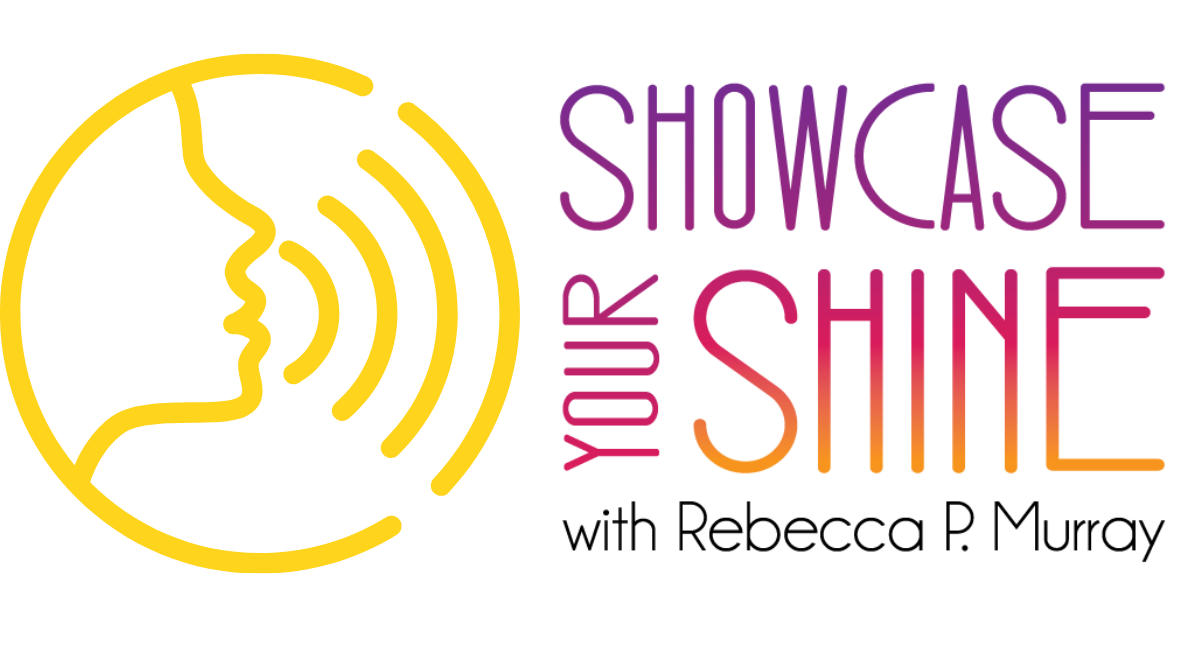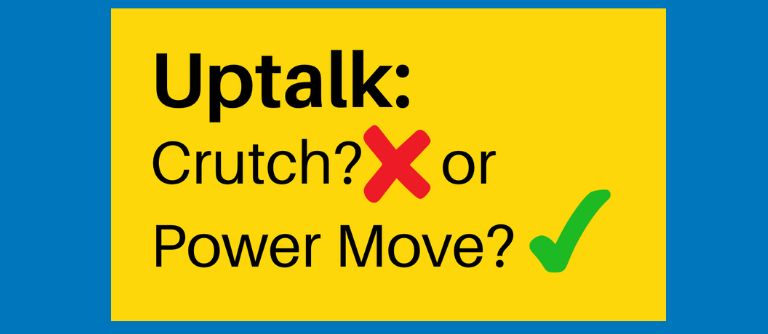The Lowdown on Uptalk:
What it is, when it hurts, and how it can actually boost your conversational influence.
From time to time, I hear someone say, “I can’t STAND it when women use uptalk!”
(SIGH. 🙂 Newsflash: it’s not just women.)
Let’s dive into this vocal affect that drives some people crazy.
What is it?
Linguists refer to this as High Rising Terminal (HRT) meaning, when a statement sounds like a question because the last syllable has an upward inflection. Think Jeopardy! Contestants provide answers that sound like questions.
In some contexts, uptalk can make you sound unsure, apologetic, or unleaderly.
Such as when:
🔹 Introducing yourself: My name is Rebecca? Murray?
🔹 Opening a meeting: Hi everyone? It’s good to see you?
🔹 Leaving a voicemail/Outgoing VM message: You’ve reached my voicemail?
🔹 Answering job interview or sales questions: Your investment is ten thousand dollars?
In those moments, you need your voice to land with gravitas, not float off like you’re asking for permission.
LISTEN TO AUDIO SAMPLE:
Let’s please recognize that: Uptalk is a beautiful and melodic part of many dialects: Australian, Canadian, Irish, Scottish, Indian, South African, and Japanese. So we need to keep this in mind. But as noted above, in certain instances can send the wrong signal.
Example:
I once coached a soft-spoken man from India who had successfully led a tech team for 15 years. However, when he moved to the US, he was unable to secure a second interview for management positions. I noticed his prolific use of uptalk when answering questions—making him sound less sure. Bringing this to his attention, he began to work on it. The good news? Today has the job of his dreams.
When is uptalk a vocal (and leadership) superpower?
✅ Interrupt without sounding like a jerk (“Hey Rebecca? Let’s circle back to….”)
✅ Say someone’s name and invite them gently (“Monica? Thoughts?”)
✅ Open a conversation instead of closing it (“Maybe there’s another way?”)
✅ Make space for uncertainty when the moment needs it (“It seems like this could work?”)
✅ Softly probing to determine someone’s state of mind (“Feels like you have concerns?”)
The truth is, we all use uptalk. And that’s a good thing. Embracing it as a form of vocal variety prevents us from sounding like robots.
Now to answer the question: Is uptalk a crutch or a power move?
👉 Turns out it’s both: Uptalk isn’t a problem. But mindlessly using it can be.
For Another Ear-Opening Perspective: 🔉Listen to this fascinating NPR FRESH AIR episode:
From Upspeak to Vocal Fry: Are We Policing young women’s voices?




